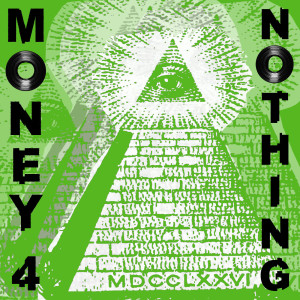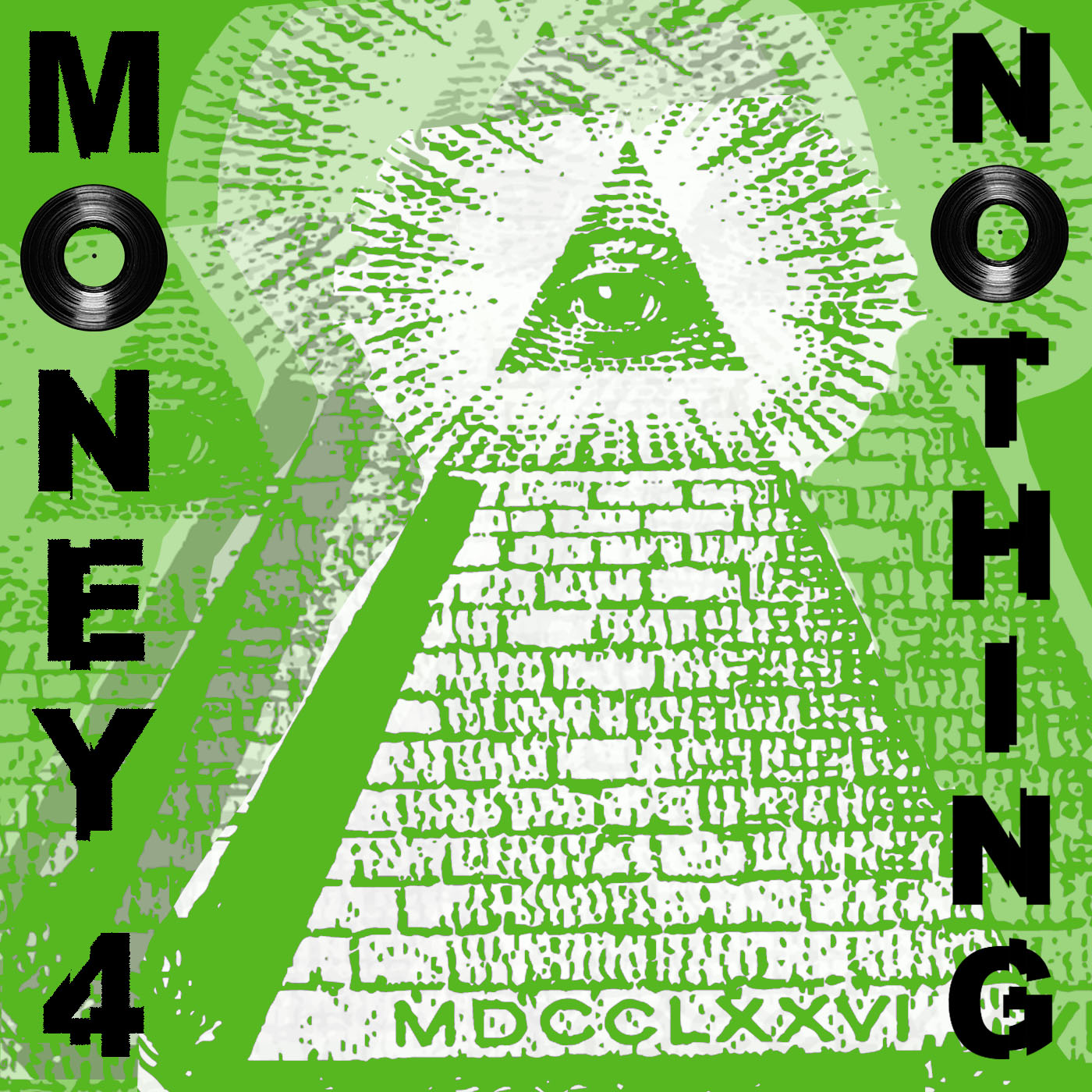Episodes

Wednesday Feb 01, 2023
Metadata Errors in the Lime Green Lamborghini (With Kristin Robinson)
Wednesday Feb 01, 2023
Wednesday Feb 01, 2023
The success of YouTube has been inextricably linked to the music business. Initially a remarkably effective streaming pirate, recent years have seen the site pivot to industry ally, paying out millions in royalties for the copyrighted material played on its platform. But who gets the money? And how? And…who is making sure it goes to the right people?
These are the questions opened up by Billboard journalist Kristin Robinson in her fascinating discussion of a remarkable YouTube scam that saw a handful of little-known Phoenix producers claim millions of dollars in royalties from many of Latin music’s biggest names. The mere possibility of the scam reflects the opaque complexity of a mega-system that turns user eyeballs (and the ad dollars that follow them) into artist revenue—a machine that’s designed to keep the platforms wealthy, with little regard for anyone else. Come for the Lamborghini—stay for an exploration of how tech giants have managed to remake the world (of copyright, but ovbi not JUST of copyright) to fit their needs.

Monday Jan 16, 2023
Reggaeton Gets Sued
Monday Jan 16, 2023
Monday Jan 16, 2023
It was revealed just this past week that basically all of Reggaeton is being sued. No, really. As you may or may not know, the massively popular genre from Latin-American and the Caribbean is actually based mostly on a few Jamaican riddims (the instrumental background or “rhythm” in contemporary Jamaican music). Now the production duo of Steely & Clevie, who wrote the riddim behind the massively popular early '90s hit "Dem Bow" by Shabba Ranks, want their bag for the riddim's use in Reggaeton over the last…oh…three-plus decades. The lawsuit includes Luis Fonsi’s “Despacito” (currently sitting as the most watched video on YouTube with a cool 8 billion plays), forty Daddy Yankee tracks, and a whole slew of other major Reggaeton hits including...Justin Bieber? So, Sam and Saxon thought they’d dive into all the reasons why this is a huge deal, and dig beyond just the big names being indicted, but consider things like when a very localized music and culture hits international markets and thus, a whole new set of laws around copyright. Also, the complexities of riddim culture in Jamaica, the role of streaming has played in Reggaeton's popularity, and why Dancehall never really reached the promised land of crossover success.

Monday Jan 02, 2023
A.I. in Der Klub (And Your Next Playlist)
Monday Jan 02, 2023
Monday Jan 02, 2023
The music industry is becoming increasingly disenchanted with Tik-Tok, finding it difficult to bend the wildly popular app for its own profitability...let alone find the next mega-star. Does that mean we might see the big three start to put the squeeze on Tik-Tok for dipping into its massive catalog without much of a payout? It worked well with Spotify for Lucian Grainge and co. But can the same sort of profit be siphoned? Also, Sam and Saxon dive into the the coming A.I. apocalypse. Well, okay, maybe its not doomsday but AI-generated music (and artists) are already here and will continue to be ever present. But what will it look like? Will it be perfectly crafted generated playlist to suit every mood? Or will AI beats be relegated to Big Room saturday nights at DER KLUB near you? If that's not enough we got a masked, AI-generated artist named MELON and a conspiracy involving The Cramps. We'll explain.
Music: Ronnie Cook - "Goo Goo Muck"

Monday Dec 19, 2022
What Taylor Swift Tells Us About the Billboard Charts
Monday Dec 19, 2022
Monday Dec 19, 2022
Taylor Swift made headlines recently by grabbing all top 10 spots on the Billboard Hot 100 chart — a first in its 64 year history — with the release of her latest record Midnights. Cool. Good for Taylor and her Swifties. But….what does that actually mean? You might think it's a simple answer, but actually the Billboard charts are a complex beast with a long and winding history that didn’t even start in music. On this episode, we ask how the charts help us narrativize music in a consumerist society, revealing that the reality it supposedly reflects has often been constructed by arbitrary calculations, new technologies and the manipulating fingers of the major labels. Along the way we think on what it can also tell us about the ruthless capitalist practices of the big box store, and how the charts have mirrored changing attitudes towards race in America.
Music: Chaz Jankel - Pretty Thing

Thursday Dec 01, 2022
The Rise and Fall of SST Records with Jim Ruland
Thursday Dec 01, 2022
Thursday Dec 01, 2022
The modern music industry is defined, in large part, by major labels and centralized digital services. To try and imagine a world without (or at least around them), we’ve been looking backwards to the 1980s, when a thriving underground economy enabled a remarkable flood of American rock. If one label could be said to define that moment, it would be LA’s SST Records. Founded in Hermosa Beach by Black Flag guitarist Greg Ginn, SST would spend the decade releasing an unbeatable string of albums from acts like Hüsker Dü, the Minutemen, Soundgarden, Sonic Youth, St. Vitus, and Meat Puppets. To try and understand how SST did it— and why it more or less vanished by the turn of the 90s, we talk to Jim Ruland author of Corporate Rock Sucks: The Rise and Fall of SST Records. Come for discussion of Spot, the best punk producer of all time. Stay for a takes on semi-thriving undefground economies , megalomania, and “weeding out.”

Wednesday Nov 16, 2022
Penny Fractions Live with Cherie Hu and Liz Pelly
Wednesday Nov 16, 2022
Wednesday Nov 16, 2022
Our good friend David Turner celebrated five years of Penny Fractions earlier this month with a live show at Nowadays. On stage, David was joined by our very own Sam Backer along side heavy-hitters Liz Pelly and Cherie Hu. Enjoy this live recording from the show as the crew run through everything you'd expect from a M4N discussion on the current state of the music industry: criticisms, hot takes, laughs, shade, shout-outs...oh and lollipops.

Tuesday Nov 01, 2022
Dan Ozzi on the Political Economy of Selling Out
Tuesday Nov 01, 2022
Tuesday Nov 01, 2022
It’s a tale as old as Nirvana. A band (ideally punk or punk influenced) forms and gets some buzz. Major labels swarm. The kids sign on the dotted line…and are promptly thrown to the wolves. Fade to black. And while that often-repeated story isn’t exactly false, it doesn’t do much to capture the shifting dynamics that shaped the economies of rock over the 90’s and 2000’s—an era when the relationship between independent artists and the major label mainstream was central to American musical culture. Luckily for us, we have Dan Ozzi, whose excellent book “Sell Out: The Major Label Feeding Frenzy that Swept Punk, Emo, and Hardcore, 1994-2007” is a vital guide to a complex and frequently oversimplified moment. We talk Green Day and At The Drive In, Thursday and Jimmy Eat World as we try to figure out why major labels threw so much money at emotionally-literate post-hardcore bands when there was still a bumper crop of Nu Metal—and how those practices shifted as the internet began to remake the industry. Talk about understanding in a car crash, amirite?
Music: Jets to Brazil - "Chinatown"

Tuesday Oct 18, 2022
The Music Catalog Acquisition Cool Down
Tuesday Oct 18, 2022
Tuesday Oct 18, 2022
In the past few months, the insane flood of money that has been flowing into the purchase of music rights (and really, into financial and tech related firms of pretty much all stripes) has begun to slow down. Crazy what rising interest rates will do, huh? These changes have prompted a wave of takes about the potential collapse of a host of music rights firms that overpromised, overpaid, and now seem poised to underdeliver—Hipgnosis, the industry leader, first among them. But…is all lost for these companies? We dig into the ways in which, profitable business model be damned, the sheer weight of capital in this sector may have already begun to bend the industry in its direction—and explore the mechanics that ensure the money probably won’t dry up anytime soon. PLUS: Future sold his catalog? What does THAT mean? Can it tell us something about the…uhhh…future...of songwriters, major artists and the alternatives it could create for a music career?

Friday Sep 23, 2022
Damon Krukowski on Unions, Streaming, and Musical Labor
Friday Sep 23, 2022
Friday Sep 23, 2022

Thursday Sep 08, 2022
The KLF: A Foolproof Way To Hit No. 1
Thursday Sep 08, 2022
Thursday Sep 08, 2022

